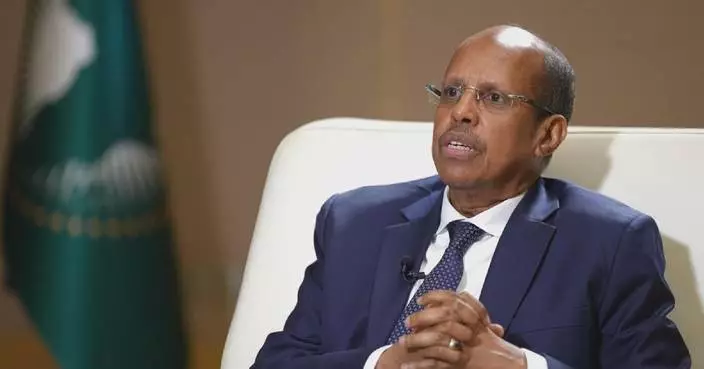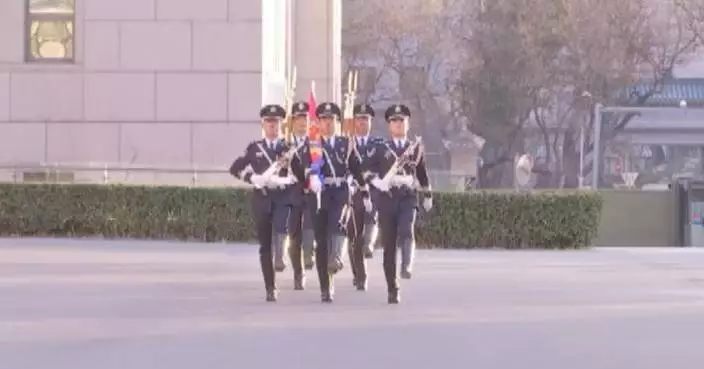Feature · News

Internet services partially resume, sufficient daily supplies available in Iran's Tehran
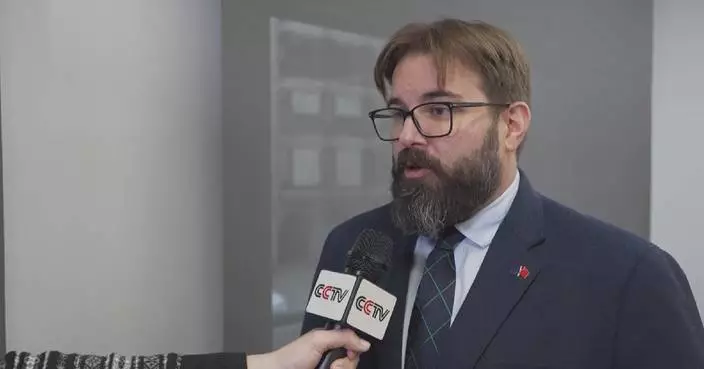
Japan should face up to history squarely: Spanish expert

Traffic operating normally, internet remains restricted in Tehran

Hamas to dissolve its governmental bodies in Gaza: spokesman
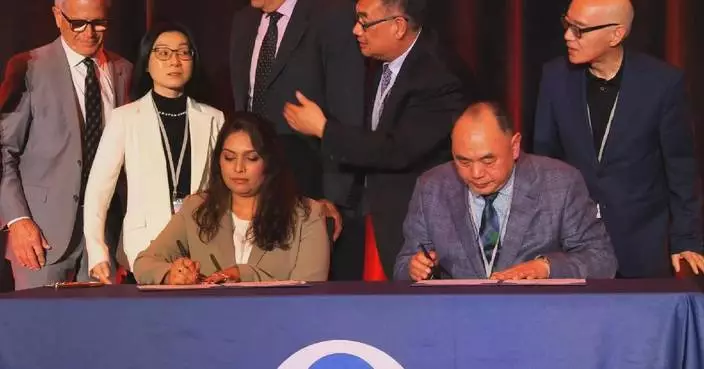
Chinese, US business leaders welcome closer cooperation at CES 2026

Record turnout for Jockey Club Special Marathon to promote social inclusion
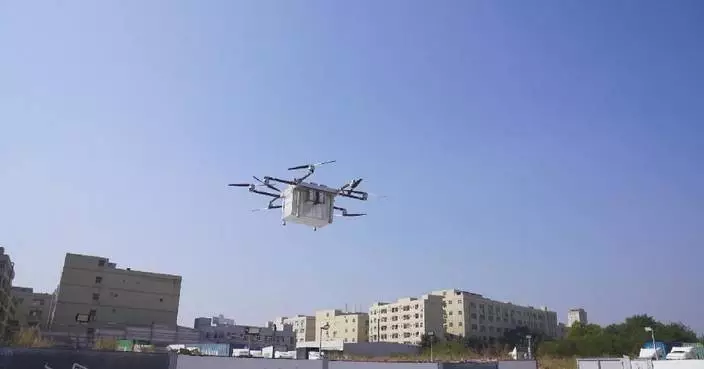
Integrated supply chains propel Greater Bay Area's low-altitude economy growth
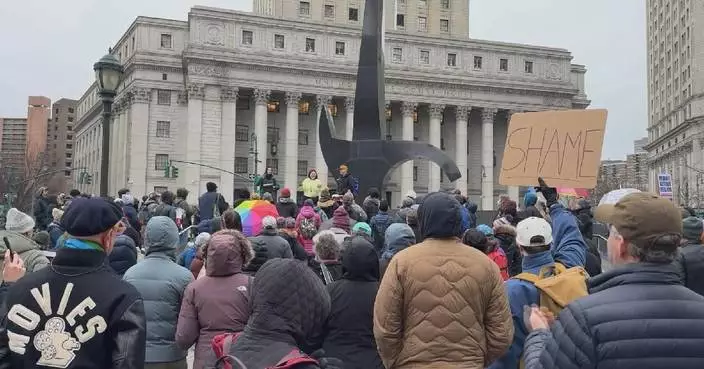
Protests against ICE held in multiple U.S. cities

Chinese robot vacuum brands gain strong global traction
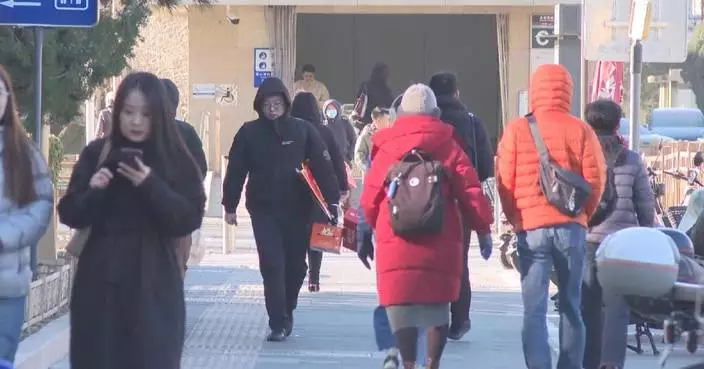
Persistent strong winds lash Chinese capital

Millions of Venezuelans scattered across Latin America cautiously watch what comes next

Kenyan women lost their husbands and then their land. But some are fighting back
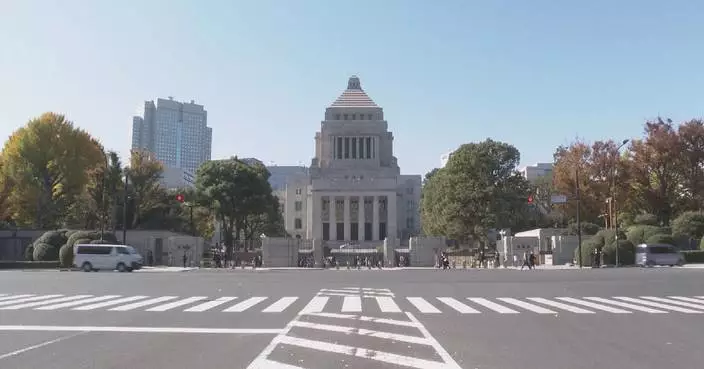
Int'l experts criticize Japanese PM's wrongful remarks for damaging int'l order

Russia reports strikes on Ukrainian energy facilities, Ukraine claims hitting Russian targets

Duty-free sales in Hainan exceed 1.2 bln yuan in first week of 2026

Daily life resumes in Caracas following US attack
Integrated supply chains propel Greater Bay Area's low-altitude economy growth
Protests against ICE held in multiple U.S. cities
Chinese robot vacuum brands gain strong global traction
Persistent strong winds lash Chinese capital
Internet services partially resume, sufficient daily supplies available in Iran's Tehran
Japan should face up to history squarely: Spanish expert
Traffic operating normally, internet remains restricted in Tehran

Hamas to dissolve its governmental bodies in Gaza: spokesman
Chinese, US business leaders welcome closer cooperation at CES 2026

Record turnout for Jockey Club Special Marathon to promote social inclusion

Millions of Venezuelans scattered across Latin America cautiously watch what comes next

Kenyan women lost their husbands and then their land. But some are fighting back
Int'l experts criticize Japanese PM's wrongful remarks for damaging int'l order
Russia reports strikes on Ukrainian energy facilities, Ukraine claims hitting Russian targets
Duty-free sales in Hainan exceed 1.2 bln yuan in first week of 2026
Daily life resumes in Caracas following US attack
Feature·Bloggers

【What Say You?】Trump’s “Maduro Grab” Gets a Glossy Spin by the Usual Suspects

【What Say You?】Trump's Judicial Theater: Maduro's Fate Already Sealed

【Deep Throat】Trump's Venezuelan Oil Grab: Big Oil Not Playing Along?

The Most Laughable Lie of the New Year: Jimmy Lai's "Grave Illness" Falls Apart Under Five Hard Facts

【What Say You?】Black Riots “comrades” Thought Ukraine Was Another “Resistance”—Then the Contract Hit

【Bastille Commentary】Green Nails? The Lie No Lawyer Would Touch

Erich von Däniken, Swiss writer who spawned alien archaeology, dies at 90
- Buddhist monks and their dog captivate Americans while walking for peace
- Husband charged in double homicide after having affair with au pair is going on trial in Virginia
- Andrea Bocelli will headline the Milan Cortina Winter Olympic opening ceremony
- Lawsuits by Trump allies could shape how the 2030 census is done and who will be counted
- Ukrainian drone attack in Russia kills 1 following Moscow's intense bombardment
- Pope Leo baptizes 20 infants in a tradition marking the end of the Christmas season
- Transgender teen athlete in a Supreme Court fight knows the upcoming sports season could be her last
- Germany sharply rejects RFK Jr.'s claims that it prosecutes doctors for vaccine exemptions
- Death toll in 2-week-old protests challenging Iran's theocracy reaches 116, activists say

U.S. share of global economy hits lowest point since 1980: Russian media
- Iran swears to counterattack if attacked
- Inner Mongolia section of Yellow River enters stable ice period after 48 days
- Aerial footage records snowy Tianshan Mountains of Xinjiang
- SCO demonstration area in coastal Qingdao reports expanding Europe-bound freight train services in 2025
- Central Japan's Wajima continues slow path toward reconstruction 2 years after earthquake
- China's Huangpi Lake sees spectacular "Bird Wave" as winter migration peaks
- Israel plans to launch new round of strikes on Gaza Strip: media
- Xinjiang's Bosten Lake hosts thrilling ice sailing regatta to boost winter tourism
- China, Lesotho elevate partnership to deepen trade, energy cooperation
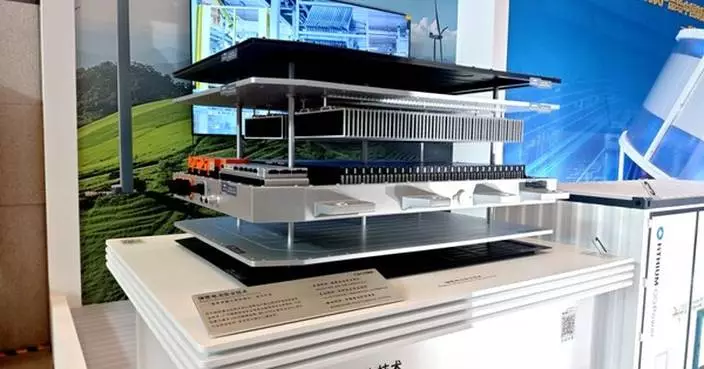
GAC Magazine Battery and Solid-State Battery Win Top National Honor
- GAC's Quark Electric Drive Achieves the World's First DAkkS ASIL D Functional Safety and Information Security Dual Certification
- CATL Opens Middle East's Largest New Energy Aftermarket Facility in Riyadh
- SeaVerse Launches World's First AI Native Platform, "All in AI Native" Leads the Forward-Looking Revolution in AI Creation
- Etiqa’s Project Firefly Reinforces Mangrove Ecosystem in Sungai Panjang in Collaboration with Malaysian Nature Society
- BiLight Dazzles CES 2026: Flexible Perovskite PV Leads Green Tech Wave, Forges Global Partnerships
- USA Truck Returns to Private Ownership with Arkansas-Based UTAC, LLC, Positioned for Accelerated Growth
- GM hit with $6 billion in charges as EV incentives cut and emissions standards fade
- Wall Street rises to records after the unemployment rate improves
- ApexVision Debuts at CES 2026: Guide Sensmart Ushers in the Ultra-Clarity Era of Thermal Imaging

How Olympians think about success and failure and what we can learn from them
- VR headsets are 'hope machines' inside California prisons, offering escape and practical experience
- Doctors say changes to US vaccine recommendations are confusing parents and could harm kids
- Strength training is crucial after menopause. How to make the most of your workouts
- Meta lines up massive supply of nuclear power to energize AI data centers
- From climbing vacuums to cyber pets: Some highlights of CES 2026
- Musk's Grok chatbot restricts image generation after global backlash to sexualized deepfakes
- Some flu measures decline, but it's not clear this severe season has peaked
- NASA, in a rare move, cuts space station mission short after an astronaut's medical issue
- 'Worst in Show' CES products include AI refrigerators, AI companions and AI doorbells

The Golden Globes are tonight. Here's what to look for and how to watch and stream the show
- Grateful Dead founding member Bob Weir dies at 78
- Veteran actor T.K. Carter, known for 'The Thing' and 'Punky Brewster,' dies at 69
- Hollywood couple Meagan Good and Jonathan Majors gain Guinean citizenship
- Actor Timothy Busfield accused of child sex abuse in New Mexico
- Hollywood stars gather for an all-winners celebration at the American Film Institute Awards
- Laura Dave's sequel to 'The Last Thing He Told Me' reveals all
- Judge dismisses Salt-N-Pepa's lawsuit to reclaim master recordings from Universal Music Group
- Rapper Fetty Wap released from prison early in drug trafficking case
- David Bowie's childhood home in London is set to open to the public next year

Paco Rassat races to 2nd World Cup slalom win in breakout season ahead of Olympics
- Sabalenka wins Brisbane final amid frosty exchange with Kostyuk, Medvedev tops Nakashima
- Milan’s Catholic archdiocese brings Olympic values into parish life
- Bencic rallies past Swiatek to give Switzerland lead in United Cup final
- Lindsey Vonn's World Cup race canceled because of snowfall, wind gusts in Austria
- 6th-tier Macclesfield upsets FA Cup holder Crystal Palace in huge shock. Man City scores 10
- Pant out as India wins toss and opts to field in 1st ODI against New Zealand
- Bears linebacker T.J. Edwards to miss the rest of the season with leg injury
- Kempe scores lone shootout goal to lift Kings past Oilers, 4-3
- All-Star 3B Alex Bregman agrees to a $175 million, 5-year contract with the Cubs, AP sources say

No New Chikungunya Cases Reported in Hong Kong as Government Enhances Mosquito Control Measures
- Nestlé Hong Kong Recalls Additional Infant Formula Over Bacillus Cereus Contamination Concerns
- V Mart Opens at Victoria Park, Showcasing Cultural Arts and Pet-Friendly Events for Chinese New Year
- Hospital Authority Enhances Medical Fee Waiver Process for Financially Needy Patients
- Hong Kong reports no new chikungunya fever cases; ongoing mosquito control efforts continue in affected areas
- Woman Sentenced to Six Months for Smuggling Duty-Not-Paid Cigarettes in Hong Kong
- 18 Temporary Cold Shelters Opened Amid Severe Weather for Those in Need
- CHP Urges Vulnerable Groups to Take Precautions Against Cold Weather Health Risks
- Hong Kong Film Festival Launches in Copenhagen, Showcasing Local Cinema and Cultural Exchange
- Health Authorities Investigate Food Poisoning Linked to School Lunches Affecting 39 Students in Two Primary Schools
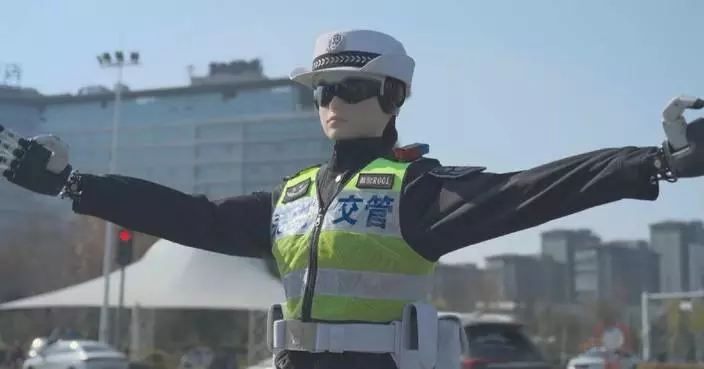
Robotic traffic officer on duty in east China's Anhui
- Protests erupt in Los Angeles against ICE, U.S. actions in Venezuela
- Home-developed ton-class cargo drone completes maiden flight
- Survivors still live in temporary houses 2 years after earthquake in Japan's Noto Peninsula
- Chinese tourists increasingly seek tailor-made experiences in Switzerland's winter tourism boom
- New giant panda couple makes public debut in Malaysia
- Thousands rally in Aden supporting Southern Transitional Council
- Venezuela FM condemns U.S. travel alert as groundless
- Nationwide protests erupt in US after ICE shootings
- Thursday's Israeli airstrikes across Gaza kill at least 14
Category · News

Paco Rassat races to 2nd World Cup slalom win in breakout season ahead of Olympics

Erich von Däniken, Swiss writer who spawned alien archaeology, dies at 90

Buddhist monks and their dog captivate Americans while walking for peace

U.S. share of global economy hits lowest point since 1980: Russian media

Husband charged in double homicide after having affair with au pair is going on trial in Virginia
Iran swears to counterattack if attacked
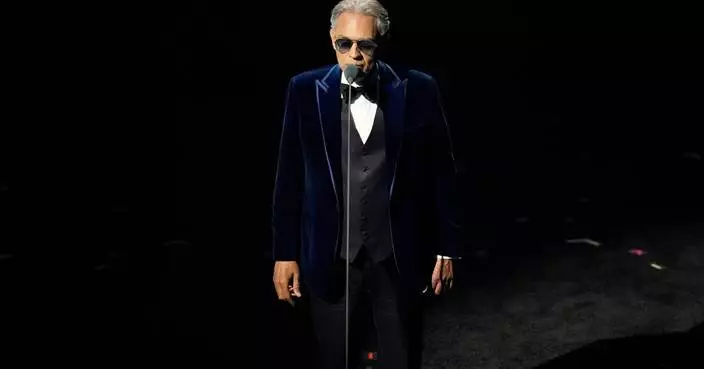
Andrea Bocelli will headline the Milan Cortina Winter Olympic opening ceremony
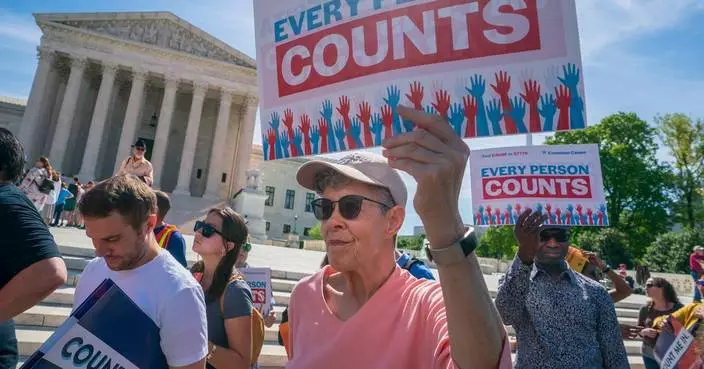
Lawsuits by Trump allies could shape how the 2030 census is done and who will be counted

Ukrainian drone attack in Russia kills 1 following Moscow's intense bombardment
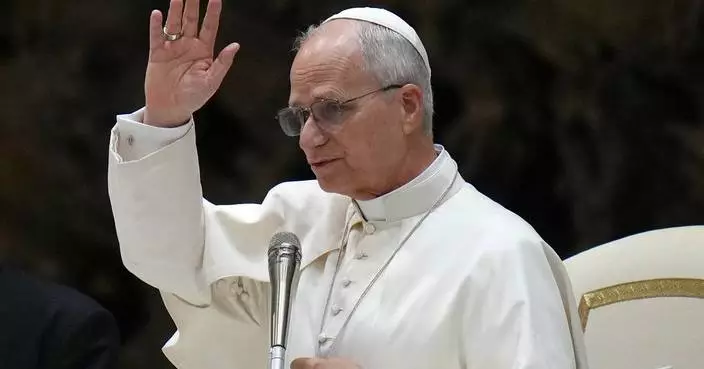
Pope Leo baptizes 20 infants in a tradition marking the end of the Christmas season

Transgender teen athlete in a Supreme Court fight knows the upcoming sports season could be her last
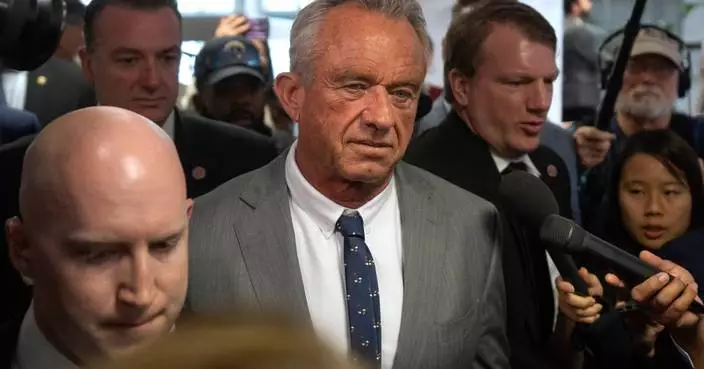
Germany sharply rejects RFK Jr.'s claims that it prosecutes doctors for vaccine exemptions

Death toll in 2-week-old protests challenging Iran's theocracy reaches 116, activists say

How Olympians think about success and failure and what we can learn from them

Sabalenka wins Brisbane final amid frosty exchange with Kostyuk, Medvedev tops Nakashima

Nepalese royalists demand monarchy restoration ahead of March elections

GAC Magazine Battery and Solid-State Battery Win Top National Honor

Braving the cold: Tokyo's New Year's ritual of ice baths, in photos
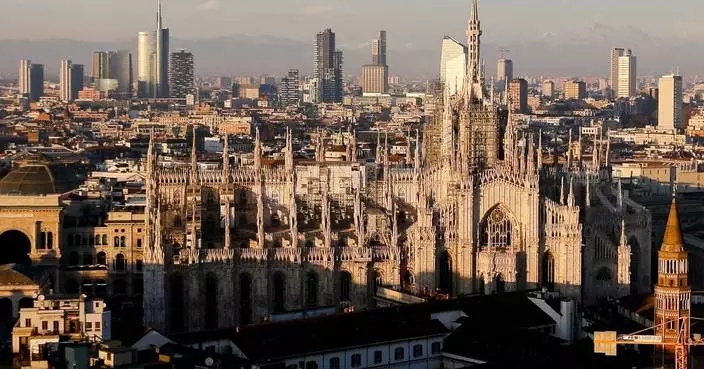
Milan’s Catholic archdiocese brings Olympic values into parish life
Inner Mongolia section of Yellow River enters stable ice period after 48 days
Aerial footage records snowy Tianshan Mountains of Xinjiang
SCO demonstration area in coastal Qingdao reports expanding Europe-bound freight train services in 2025
Central Japan's Wajima continues slow path toward reconstruction 2 years after earthquake
China's Huangpi Lake sees spectacular "Bird Wave" as winter migration peaks
Israel plans to launch new round of strikes on Gaza Strip: media

Xinjiang's Bosten Lake hosts thrilling ice sailing regatta to boost winter tourism
China, Lesotho elevate partnership to deepen trade, energy cooperation
Robotic traffic officer on duty in east China's Anhui

No New Chikungunya Cases Reported in Hong Kong as Government Enhances Mosquito Control Measures
Protests erupt in Los Angeles against ICE, U.S. actions in Venezuela
OPEC faces new challenges if Venezuelan oil production rises: analyst

Bencic rallies past Swiatek to give Switzerland lead in United Cup final
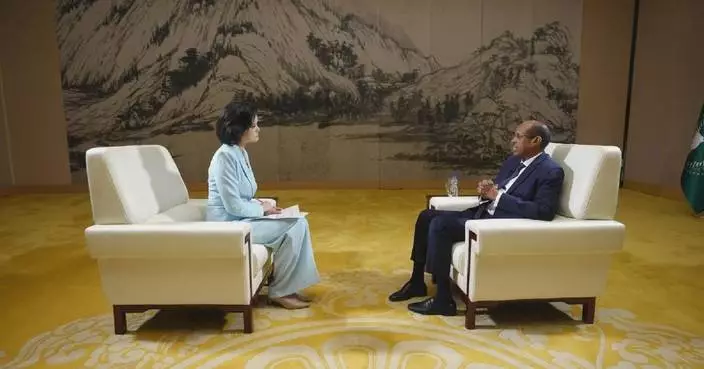
AU Commission chief reiterates firm adherence to one-China principle
Home-developed ton-class cargo drone completes maiden flight

Lindsey Vonn's World Cup race canceled because of snowfall, wind gusts in Austria
Survivors still live in temporary houses 2 years after earthquake in Japan's Noto Peninsula
Chinese tourists increasingly seek tailor-made experiences in Switzerland's winter tourism boom

6th-tier Macclesfield upsets FA Cup holder Crystal Palace in huge shock. Man City scores 10
New giant panda couple makes public debut in Malaysia
Yemen forms supreme military committee under Saudi-led coalition
Thousands rally in Aden supporting Southern Transitional Council
Protests in Venezuela demand release of Maduro couple
Venezuela FM condemns U.S. travel alert as groundless
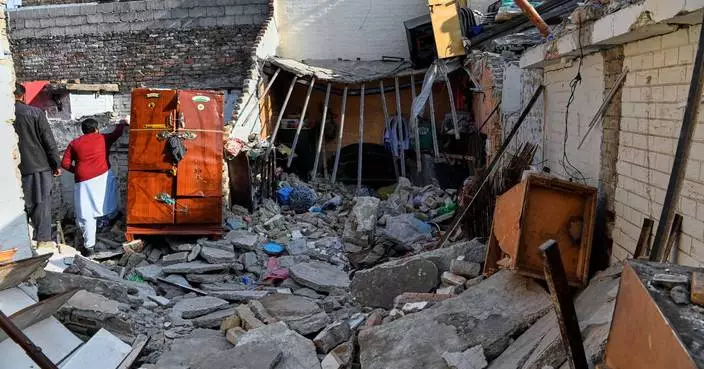
Bride and groom among 8 killed in gas cylinder blast at wedding in Pakistan’s capital

Pant out as India wins toss and opts to field in 1st ODI against New Zealand
Protesters rally in Italy, Greece against U.S. military operation in Venezuela

GAC's Quark Electric Drive Achieves the World's First DAkkS ASIL D Functional Safety and Information Security Dual Certification
Protest erupts in Mexico City over US military operation in Venezuela

Bears linebacker T.J. Edwards to miss the rest of the season with leg injury
Chinese foreign minister arrives in Lesotho for visit

Kempe scores lone shootout goal to lift Kings past Oilers, 4-3

All-Star 3B Alex Bregman agrees to a $175 million, 5-year contract with the Cubs, AP sources say
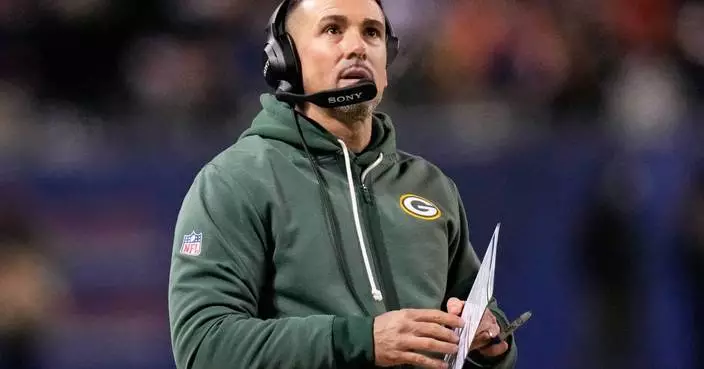
Matt LaFleur and the Packers face uncertain future after blowing big lead in wild-card loss

Elina Svitolina beats Wang Xinyu to win her 19th WTA Tour title in Auckland
Nationwide protests erupt in US after ICE shootings

Caleb Williams rallies Bears from 18 points down for 31-27 playoff win over rival Packers

Myanmar holds second round of voting in first general election since military takeover

Blues' Philip Broberg signs 6-year, $48M extension and then is injured vs. Golden Knights
China, Tanzania pledge to align development strategies

Marner, Stone lead Golden Knights to 4-2 win over Blues

Hornets build a 47-point lead in the 1st half and rout the Jazz 150-95

Wembanyama's late jumper seals Spurs' win over Celtics
US remarks on Greenland threaten regional peace: Italian observers

Ilia Malinin wins 4th consecutive U.S. Figure Skating title with dialed-back performance

Celtics star Jaylen Brown criticizes officials after loss to Spurs

Retouched images of Israel's first lady, distributed by the state, ignite a fiery ethics debate

Pro Picks: 4 road teams are favorites in wild-card weekend

Greenland’s harsh environment and lack of infrastructure have prevented rare earth mining

Bears and Rams advance to divisional round with comeback wins to open NFL playoffs

The Golden Globes are tonight. Here's what to look for and how to watch and stream the show

Kings' Dennis Schroder suspended for 3 games after off-court confrontation

Jason Kidd ejected from Mavericks' game in Chicago for arguing with Scott Foster

Carolina Panthers believe they 'aren't the same old' team after close playoff loss to LA Rams

Simon Holmstrom's second goal gives Islanders a 4-3 overtime win over Wild

Stafford's late TD pass to Parkinson lifts the Rams past the Panthers 34-31 in tense playoff opener

Oweh scores 22, Moreno adds 17 to help Kentucky beat Mississippi State 92-68

Drew Commesso makes 37 saves for 1st NHL shutout and victory, Blackhawks beat Predators 3-0

Grateful Dead founding member Bob Weir dies at 78

Wembanyama and Fox each score 21 points in Spurs' 100-95 win over Celtics

Bulls beat Mavericks 125-107 after Kidd is ejected in the first quarter

Forsling, Verhaeghe each have goal and assist as Panthers beat Senators 3-2

DeBrincat's goal, 2 assists lead Red Wings over Canadiens 4-0

Leonard, Collins and Harden power Clippers to comeback win over Pistons, 98-92

Nylander has goal and 2 assists in injury return, Maple Leafs beat Canucks 5-0




